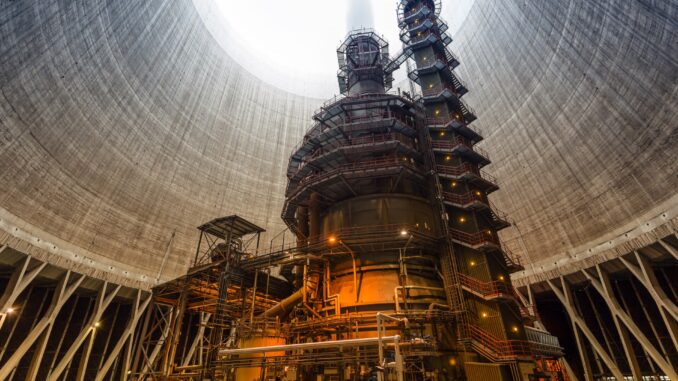
The vulnerability of Kazakhstan’s vital oil and gas sector to the nation’s crumbling electricity network was exposed this week when a major power outage hit the west of the country with widespread repercussions for export pipelines and operations at key fields and refineries.
The outage at the MAEK thermal power plant in Atyrau on Jul. 3 also highlighted the country’s continued dependence on Russia despite Astana’s attempts to balance its position between Moscow and the West. Russian oil company Gazprom Neft quickly started deliveries of AI-95 gasoline to Kazakhstan, Kazakh energy minister Almasadam Satkaliyev was quoted as saying.
One of the most significant impacts was seen at the Caspian Pipeline Consortium (CPC) which transports around 80% of Kazakhstan’s crude oil exports, or around 1.2 million barrels per day, via a 1,511 kilometer pipeline from the Tengiz field operated by Chevron-led Tengizchevroil (TCO) to a terminal near the Russian Black Sea port of Novorossiysk.
CPC said on Jul. 5, two days after the outage: “We are forced to state that the consequences of the emergency situation on the power grids in Western Kazakhstan have not yet been completely eliminated.” It said that due to the lack of power, it had to stop three pumping stations — at Tengiz, Atyrau and Isatai — “although we continue to receive crude oil from TCO.” Later in the day, the situation started to ease and CPC said it “resumes oil intake from all shippers.”
Production Disruption
State oil and gas company Kazmunaigas said production has been disrupted at a number of oil fields in the west, including ones operated by its subsidiaries Uzenmunaigas, Embamunaigas, Mangistaumunaigas and Karazhanbasmunai.
The 110,000 b/d Atyrau refinery was also suspended, while the tightness in the market was exacerbated with the country’s other two refineries, at Pavlodar and Shymkent, undergoing maintenance. Satkaliyev, the energy minister, said Kazakhstan has a reserve of AI-95 gasoline for 15 days. Given the reduced production of the fuel in Kazakhstan, the market needs to import 40,000 metric tons per month to cover demand, he said.
The failures of the Kazakh power grid are becoming a regular occurrence. The grid was last hit in February leaving households in several regions without electricity as temperatures plunged to -14°C. The problems are deep-rooted, says Ben Godwin, director of analysis at London-based PRISM Political Risk Management.
“Kazakhstan’s infrastructure crisis is clearly the result of years of neglect of critical physical infrastructure,” Godwin tells Energy Intelligence. “Corruption must be a part of this story. However, behind this neglect is also a failure of reform. The government has not put the market mechanisms in place that would break down monopolies and cartels, nor create a climate that will stimulate investment in the production of key commodities such as gas and fuel,” Godwin said.
Gas Shortage
Kazakhstan has massive reserves of coal, which could yet keep a foothold in the country’s power generation mix. Plans to phase out coal-fired power stations and move to renewables by using gas as a transition fuel could be undermined by a shortage of gas. Eni and TotalEnergies, which are both stakeholders in Kazakhstan’s huge Kashagan oil field in the Caspian Sea, are heading wind and solar developments that are central to Kazakhstan’s long-term plan to have renewables account for 15% of electricity output by 2030 and to achieve carbon neutrality by 2060.
Kazakhstan has a lot of gas, but over half of its production is reinjected and consumption is rising so fast that exports could come to a halt by 2025. Even though the Kazakhs have been trying to ease their reliance on their northern neighbor, they are already discussing the importation of gas on favorable terms from Russia, which at the beginning of last year strengthened its ties with Astana by helping to put down an uprising in Kazakhstan.
Godwin, of the PRISM risk consultancy, comments: “Kazakhstan is now left with a series of very unenviable choices. It does not have the time or the capital to build its own power capacity or supply gas for its own domestic and industrial needs. Instead, it has had to turn to Russia — on which it is already heavily dependent for export routes and other key strategic concerns.”



